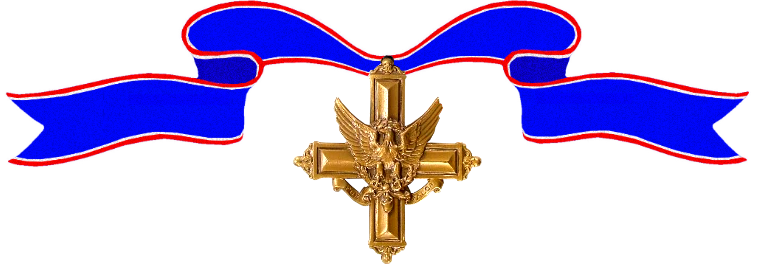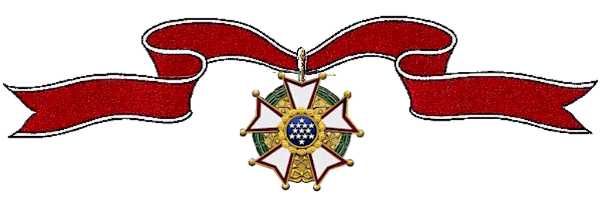Serving as an Observer during aerial combat in World War I, Arthur Easterbrook became an ACE with 5 shared aerial victories with his pilot. He received a temporary appointment to Brigadier General in 1944, and retired in 1946. His brother Ernest Fred Easterbrook graduated from West Point in the Class of 1931, earned a Silver Star in Korea, and retired as a U.S. Army Major General. His sister Gladys married Joseph Lawton Collins who earned two Silver Stars and retired as a 4-star General

–
Cemetery:
Awards Received
-

Distinguished Service Cross
-

Distinguished Service Cross
-

Legion of Merit
-
Distinguished Service Cross
Service:
United States Army Air ServiceRank:
First Lieutenant (Air Service)Batallion:
1st Aero SquadronDivision:
American Expeditionary ForcesAction Date:
October 8, 1918
War Department, General Orders No. 116 (1919)The President of the United States of America, authorized by Act of Congress, July 9, 1918, takes pleasure in presenting a Bronze Oak Leaf Cluster in lieu of a Second Award of the Distinguished Service Cross to First Lieutenant (Air Service) Arthur Edmund Easterbrook, United States Army Air Service, for extraordinary heroism in action while serving with 1st Aero Squadron, U.S. Army Air Service, A.E.F., near Exermont and Varennes, France, 8 October 1918. Lieutenant Easterbrook, with Lieutenant Erwin, pilot, successfully carried out a mission of locating our Infantry, despite five encounters with enemy planes. During these encounters he broke up a formation of three planes, sending one down out of control; killed or wounded an observer in an encounter with another formation; and sent a biplane crashing to the ground, besides driving away a formation of two planes and several single machines.
-
Distinguished Service Cross
Service:
United States Army Air ServiceRank:
First Lieutenant (Air Service)Batallion:
1st Aero SquadronDivision:
American Expeditionary ForcesAction Date:
September 12, 1918
War Department, General Orders No. 116 (1919)The President of the United States of America, authorized by Act of Congress, July 9, 1918, takes pleasure in presenting the Distinguished Service Cross to First Lieutenant (Air Service) Arthur Edmund Easterbrook, United States Army Air Service, for extraordinary heroism in action while serving with 1st Aero Squadron, U.S. Army Air Service, A.E.F., near St. Mihiel, France, 12 September 1918. Because of intense aerial activity on the opening day of the St. Mihiel offensive, Lieutenant Easterbrook, observer, and Second Lieutenant Ralph E. De Castro, pilot, volunteered to fly over the enemy’s lines on a photographic mission without the usual protection of accompanying planes. Notwithstanding the low-hanging clouds, which necessitated operation at an altitude of only 400 meters, they penetrated 4 kilometers beyond the German lines. Attacked by four enemy machines, they fought off their foes, completed their photographic mission, and returned safely.
-
Legion of Merit
Service:
United States Army Air ForcesRank:
Brigadier GeneralAction Date:
November 1941 – January 1944
The President of the United States of America, authorized by Act of Congress, July 2, 1926, takes pleasure in presenting the Legion of Merit to Brigadier General Arthur Edmund Easterbrook, United States Army Air Forces, for exceptionally meritorious conduct in the performance of outstanding services to the Government of the United States as Assistant Chief of Staff (A-1), Army Air Forces Western Flying Training Command, from November 1941 to January 1944, displayed executive ability of the highest order, which was particularly outstanding during the early growth and vast expansion of the Air Forces Training Program. His foresight and powerful planning resulted in the smooth and efficient transition from moderate peacetime training to the greatly accelerated war-time production of flying crews. With great skill, General Easterbrook organized and coordinated training activities and tirelessly applied himself to personnel problems, effecting the ultimate use of available manpower and rendering exceptionally meritorious services in the war effort.

